36 products

- White Wine
- Chardonnay
- Sustainable, Vegan-Friendly
- Dry
- Medium Bodied
- 750ml
- 12.5% alc./vol
About the Winery
Domaine de Mauperthuis

A family estate created by Marie-Noëlle & Laurent Ternynck, Domaine de Mauperthuis is located in Prehy, near the town of Chablis. Their wines express the terroir of this amazing region and the vineyards are currently undergoing the transition to organic. Domaine de Mauperthuis covers around twenty hectares of vineyards around Chablis. The estate, in the Burgundy appellation, is planted in Chardonnay, Pinot Noir, Sauvignon and César, on land facing south, benefiting from exceptional sunshine.
Press Reviews
Wine Align
91 points - David Lawrason
This is a quite rich, slightly oxidative style of unoaked chardonnay with pale golden colour and a ripe nose of baked apple. Peach pie, toasty lees and vague nuttiness. It is medium weight, smooth and almost creamy with fine acidity and mineral underpinning. The length is excellent. Tasted June 2022
- White Wine
- Pinot Bianco
- Sustainable
- Dry
- Light Bodied
- 750ml
- 13% alc./vol
About the Winery
Kellerei Bozen - Cantine Bolzano

Cantina Bolzano, based in the town of Bolzano, traces its roots to two of Alto Adige’s most historic cooperatives: Santa Magdalena, est. 1930 and Cantina Gries, est. 1908. After deciding to merge in 2001, Cantina Bolzano was created. Bolzano is located in the middle of a valley basin surrounded by hilly vineyards that grow from 200 meters above sea level up to 1000. North and south meet in this valley, and the sun warms the stony soils with its pronounced diurnal temperatures, protecting the vines from the cold.
The average growers’ plots in Sudtirol averages only approx. 1 hectare, and the area, with its famed reputation and steep slopes, is an expensive area to farm. The member of Bolzano (approx. 300 in all) own many of the best vineyards throughout the region, including the Valle Isarco, and pool their resources to create top quality wines. And while no grower is certified organic, many practice organic viticulture and all of them adhere to natural practices in their vineyards. Most growers have lived on their farms with their families for generations. They protect their land and cultivate their vineyards as they have done for generations with total respect of the environment where they live.
Press Reviews
Wine Align
92 points - Michael Godel
Shining bright and gifting outright pleasure just about nine months after having first tasted this stellar 2022 pinot bianco. Acidity ripe and sweet to elevate fruit up onto the palate's pedestal it so rightly deserves. Last tasted April 2024. High-level pinot bianco in many respects, beginning with this gelid cool and über zesty citrus perfume in which a pesto of sweet basil, creamy pine nuts fruity-aromatic olive oil swirl. The lemon is dreamy and the wine glides down with such delicate texture you don't even realize it is being swallowed. This is top varietal stuff from Kellerei Bozen. Drink 2023-2025. Tasted July 2023.
91 points - John Szabo, MS
Clean and discreet, subtle in a sophisticated way, the Cantina di Bolzano rarely fails to impress with its consistently excellent wines. This delicate pinot bianco offers lovely balance, sapid and saliva-inducing palate, and remarkable length, all on a moderate alcohol (13.5% declared) medium-bodied frame. It's the sort of passe-partout wine we all need in the cellar, comfortable during aperitif hour, or at the table for a wide range of dishes from salads to grilled pork chops and everything in between. Proper, well-made, characterful wine. Tasted July 2023.
91 points - Megha Jandhyala, S.J.D
Made with fruit from vineyards situated on hilly slopes surrounding the village of Bolzano, this is a sleek, refined, and focussed pinot bianco. The nose is a subtle and delightful harmony of ripe citrus fruit, crisp apples, and mineral tones. Its texture is particularly appealing, glossy and succulent, supported by zesty acids. The finish is delicate and long-lasting. Tasted July 2023 by Critic Understudy Megha Jandhyala.
- Red Wine
- Grenache, Mourvèdre / Monastrell, Samso / Carignan, Syrah
- Sustainable, Vegan-Friendly
- Dry
- Medium Bodied
- 750ml
- 14.5% alc./vol
About the Winery
Domaine Andre Aubert
At the very heart of the Rhône Valley, at the northerly tip of the Southern Rhône, lie the vineyards of Grignan-Les-Adhémar. The chances are you haven’t heard the name before, few people have, but the wines are worth seeking out. It’s not a new wine region – vines have been planted here since around 500BC but it is a new name (formerly known as Côteaux-du-Tricastin). Domaine André Aubert, has been formed over decades and today comprises of more than 280 hectares spread from north to south of the prestigious Southern Rhone Valley on the appellations Côtes du Rhône, Côtes du Rhône villages, Visan, and Grignan-les-Adhémar.
Press Reviews
Wine Align
90 points - David Lawrason
This is new appellation (formerly Coteaux de Triscatin) is the northernmost in the southern Rhone. It uses the typical southern Rhone varieties, but none can be more than 80% of the blend. This is a quite elegant, well structured, mid-weight red with some stony minerality, lifted pepper and savoury notes. Not as opulently fruity and rich as many peers, yet very tidy and balanced. The length is very good to excellent. Tasted March 2022
- Red Wine
- Primitivo
- Sustainable
- Dry
- Full Bodied
- 750ml
- 13.50% alc./vol
About the Winery
Cantine Paradiso
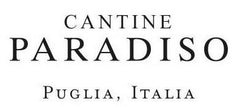
Cantine Paradiso is located is the South of Italy, in the region of Puglia. During the estate's 60-year history, the Paradiso family have always given the utmost importance to their close ties to Puglia's unique terroir, promoting the area's winemaking culture and constantly improving the quality of their production. The ongoing results confirm the choices made by three generations of down-to-earth vignerons closely bound to tradition and sensitive to innovation.
Press Reviews
Wine Align
90 points - Michael Godel
Cinematic and Mediterranean, Pugliese and really quite luminous so a bit other or different for primitivo of the place. Some may find it lean or light for the grape but in fact it's quite linear, lovely and elegant. With a slight chill and a simple red sauce in optimum season you could drink so much of this outdoors, overlooking water, all summer long. Drink 2020-2023. Tasted August 2020.
- Red Wine
- Malbec
- Sustainable, Vegan-Friendly
- Dry
- Full Bodied
- 750ml
- 13% alc./vol
About the Winery
Château Lamartine
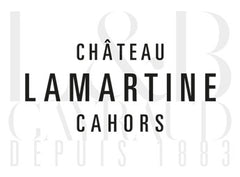 The Château Lamartine stands at the extremely west side of the Cahors Appellation, on the oldest of Lot Valley’s terraces. The terroir of the 37 hectares faces South on clay and limestone soils which guarantees a perfect maturity to the Malbec.
The Château Lamartine stands at the extremely west side of the Cahors Appellation, on the oldest of Lot Valley’s terraces. The terroir of the 37 hectares faces South on clay and limestone soils which guarantees a perfect maturity to the Malbec.For four generations, the Gayraud family has given the greatest care to the vines as well as the wine-making. This is the key to get the purest expression from the terroirs.
Press Reviews
Wine Align
92 points - Michael Godel
The 2018 “Tradition” bottling represented Cahors with good distinction and from first nose this follow-up ’19 takes that excellence one step further. Not that it gives anything away for free because there is some reserve here but the wine opens with air and agitation to reveal classicism in every respect. The fruit is mature and slow developed, ever so slightly charred and surely on a low trajectory of incrementally developing complexity. Cautious now and yet so close to drinking as well it it’s ever going to be. Drink 2024-2028. Tasted March 2023.
91 points - John Szabo
Open and fragrant, maturing nicely at this stage, Lamartine's classic Cahors (90% malbec with 10% merlot), is a lovely and succulent wine, well-proportioned and fresh, with lively acids and a real limestone twang. Wood is fully in the background, an accessory to complexity, while tannins are ripe, fine and silky and length is exceptional in the price category. Classy, well made wine, authentic, and surely better than most Bordeaux for the money. Drink or hold another 4-6 years. Tasted March 2023.
- White Wine
- Clairette, Grenache Blanc, Marsanne, Picpoul
- Organic, Vegan-Friendly
- Dry
- Full Bodied
- 750ml
- 13.50% alc./vol
About the Winery
Château de Montfaucon

Just across the Rhone river from the beautiful vineyards of Chateauneuf-du-Pape, the Lirac appellation extends itself on the low hills alongside the river. The history of Château de Montfaucon dates back to the 11th century when the castle's first tower was built. The castle's role in history was strategic; the Rhône River was the border between the French Kingdom and the Holy Roman German Empire. Montfaucon was one of many castles and fortresses along the Rhône River constructed to guard the border.
Rodolphe de Pins took over the family estate of Montfaucon in 1995 and subsequently rebuilt the winery and began practicing sustainable agriculture. He honed his winemaking skills in Barossa at Henschke and Vieux Telegraphe in Châteauneuf du Pape before returning to Lirac, so needless to say, his familiarity with the local varieties is well established.
Press Reviews
Wine Align
92 points - Michael Godel
Comtesse Madeleine may not be a Rhône original out of the Lirac appellation but my if it does not strike as something profound. The blend is 40 per cent each marsanne and clairette with (10) grenache blanc (plus perhaps a splash of picpoul) for a devilishly flinty white with a veritable scent of animal musk, like porchetta releasing that tell-tale aroma just after the skin begins to render at heat. This is the real deal in French white wine for which the blending process and subsequent elévage can pull out meaning to change the way wine will speak to those that are listening. Intently in this case and for great reason. Drink 2023-2026. Tasted February 2023.
92 points - Sarah d'Amato
A lively and characterful blend of marsanne, clairette and grenache blanc. Expressive and concise with freshness created through a combination of acidity and minerality. Features notes of rosebud, honeysuckle and ginger spice along with thyme, pear, lanolin, fresh fig and lemon. A compelling assemblage that brings new dimension and complexity through a succession of undulating sensorial waves. Honestly made with a light-handed touch. Balanced and lengthy. Tasted February 2023.
91 points - Megha Jandhyala
This is an aromatically expressive blend of clairette, grenache blanc, marsanne, and picpoul, from Lirac, an appellation that lies just across the Rhône river from famed Châteauneuf-du-Pape. I really like its glossy, smooth texture and flavours of apricots, lemons, and grapefruits, alongside subtle notes of vanilla and wet stones. The palate is integrated and balanced, with a sense of both richness and freshness. The finish is graceful and long-lasting. Tasted February 2023 by Critic Understudy Megha Jandhyala.
Decanter
90 points
Distinctly nutty from the oak, macadamia, gently grilled elements to the fruit. Good acidity. Little touch of honeycomb on the finish. Acidity is balanced. Drinking window 2020 - 2022.
- Rosé Wine
- Prieto Picudo
- Sustainable, Vegan-Friendly
- Dry
- Medium Bodied
- 750ml
- 13.5% alc./vol
About the Winery
Bodegas y Viñedos Pardevalles
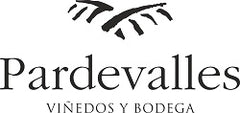 Pardevalles is recognized for being one of the driving forces behind the D.O Tierra de León, betting on the development of the indigenous grape varieties Prieto Picudo and Albarín Blanco. In 1949 Rafael Alonso founded Pardevalles continuing with the family tradition of growing grapes and making wine. The winemaking tradition in León goes back more than 400 years, famous for its centuries-old caves where wine was originally made.
Pardevalles is recognized for being one of the driving forces behind the D.O Tierra de León, betting on the development of the indigenous grape varieties Prieto Picudo and Albarín Blanco. In 1949 Rafael Alonso founded Pardevalles continuing with the family tradition of growing grapes and making wine. The winemaking tradition in León goes back more than 400 years, famous for its centuries-old caves where wine was originally made.The vineyards of Pardevalles are located between 750 and 820 metres above sea level, in an area with a Continental climate. They grow in poor, rocky alluvial soils which helps maintain the freshness in the wines. The philosophy of the Estate is grounded in making wines which express the character and identity of their origin, with a deep respect for the earth and the indigenous varieties of grape, combining tradition, innovation, and hard work.
Press Reviews
WineAlign
90 points - Sara d'Amato
Pours a luminous, deep pink, this rosada from Leon is made entirely of the indigenous prieto picudo grape, more typically a blending variety with dark skins and often resulting in wines with licorice-tinged black and red fruit. With youthful exuberance and potency, this salty and succulent expression features a wealth of lightly candied red berries, slippery tannins and a touch of welcome bitterness that contributes balance and a sensation of freshness. Best to enjoy in its youthful condition but it has the concentration for another year or two of aging. Tasted February 2024.
- Red Wine
- Cabernet Sauvignon, Merlot
- Dry
- Medium Bodied
- 750ml
- 13.6% alc./vol
- Red Wine
- Corvina, Rondinella
- Sustainable, Vegan-Friendly
- Dry
- Full Bodied
- 750ml
- 15.5% alc./vol
About the Winery
Ca' del Monte

Ca del Monte is situated on the hillsides overlooking the village of Negrar, in the heart of Valpolicella. It has belonged to the same family for generations, and is now run by brothers Umberto and Giuseppe Zaconte. There’s nothing fancy about this place. The house and winery are modest - and are attached to a 17th century monastery.
The estate is approximately 50 acres, and its 15-65 year old vines lie on gentle slopes at 800-900 meters. They grow on four soils including clay, limestone, red volcanic soil with red stones, and “Toar,” a green volcanic soil. The vineyards of Ca Del Monte are planted with 20-40 year old vines of Corvina, Rodinella and Molinara grapes that are planted in poor soils that stress the vines and nurture the fruit. All of the farming is done traditionally and non-certified organic.
- Red Wine
- Cabernet Franc, Merlot
- Dry
- Medium Bodied
- 750ml
- 13.50% alc./vol
About the Winery
Château du Moulin Noir
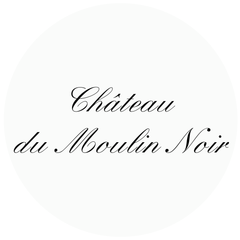
This beautiful right-bank Bordeaux estate consistently produces high-value, elegant and classic Merlot dominant wines and is considered one of the most famous Château of this appellation. Located in Montagne-Saint-Emilion, Château Moulin Noir consists of seven hectares of vineyards on clay and limestone soils.
This château owes its name to a family feuddating back to the Middle Ages. Two brothers were arguing about their father’s legacy with the youngest brother being incredibly jealous that everything went to the elder. He was so jealous that he burnt the château to the ground - Moulin Noir translates to “blackened Mill”.
Press Reviews
Wine Align
91 points - Sara d'Amato
This notably complex right bank blend from a satellite appellation of Saint-Emilion offers appealing savory notes along with a mineral, iron component as well as licorice spice. The oak treatment is wonderfully integrated with wood spice elevating the bright red fruit. Harmoniously matured, graceful and very elegant. The staying power of the finish is impressive. Drinking very well now. Tasted January 2019.
- Red Wine
- Graciano, Grenache, Tempranillo
- Sustainable
- Dry
- Medium Bodied
- 750ml
- 14.5% alc./vol
About the Winery
Bodegas Exopto
Exopto is Latin for “to long for” or “to desire greatly” and it is the dream of Frenchman Tom Puyaubert and his family to endeavor to craft and assemble wines where the whole adds up to more than the sum of their parts. Tom relocated from France to Rioja in 2000 after falling in love with the region and working for the French cooperage Saury as its Spain representative.
When Tom began Exopto, he wanted to do a project that produced wines within this historical context of Rioja - combining both worlds in a unique way. His idea is to remain true to the blending of the principle grape varieties and to do so from the best terroirs/villages for those varieties crossing sub-regions of Rioja. Each wine though, has a majority of a different principle grape – showcasing that variety specifically within the context of a blend. The viticulture and winemaking model is that of the “vigneron” days – small plots of vines in the extremes, wild yeast fermentation in concrete or old oak vats and then aging in a way to showcase the fruit, minerality and terroir not the wood or aged flavours that people often associate with Rioja.
Press Reviews
Robert Parker
92 points
The very young red 2021 Bozeto de Exopto mixes Tempranillo from Ábalos and Mediterranean Garnacha from Alfaro (with 10% Graciano), and it seems very balanced, with good ripeness (14.5%), showing the Garnacha and the more austere Graciano with nice fruit and freshness. It's serious and has complexity and depth beyond its price point. It matured in a combination of concrete and oak containers for some six months. Excellent value in one of the finest vintages for this wine. 70,000 bottles produced. It was bottled in April 2022.
Wine Align
91 points - John Szabo
A blend of garnacha, tempranillo and graciano grown at around 500m in the Sierra de Cantabria, this is aged exclusively in concrete and thus a long way from what many would consider the 'traditional' style of Rioja. I like the freshness and vibrancy allied at the same time to ripe, plush fruit spanning both the red and black spectrum. Tannins are supple and acids balanced and creamy, leading into a long, gently saline finish. Concentration and depth, as well as complexity overall, far exceed expectations in the category. Well made wine from an evidently superior vineyard, delicious now, or hold 3-4 years. Tasted January 2024.
91 points - Megha Jandhyala
This is a charming Rioja, a blend of garnacha, tempranillo, and a small amount of graciano. I like the bright, supple red fruit here and the pretty floral and savoury herbal notes. The palate is lively and supple, with fine-grained tannins and juicy acids. Fresh, streamlined, and with a sense of lightness that is appealing, this wine is ready to drink, though it can also be cellared for a couple of years. Tasted January 2024.
- Red Wine
- Nerello Cappuccio, Nerello Mascalese
- Sustainable, Volcanic
- Dry
- Medium Bodied
- 750ml
- 14.5% alc./vol
About the Winery
Azienda Agricola Tornatore
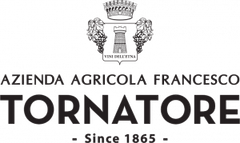
Out of a Sicilian family heritage that traces back to the 17th century, the Tornatore’s Mount Etna wine ventures began in 1865. Today the family’s operations are headed by Giuseppe Tornatore, a businessman whose expertise led to the acquisition of some of the region’s finest north-facing vineyards in the early 2000’s. That heritage and the Tornatore’s profound respect and understanding of the land is showcased in wines that capture the essence of Etna, deftly balancing concentrated flavors, complexity, freshness and refinement.
The company lies in the northern side of Mount Etna, the highest active volcano in Europe. The soils have volcanic origin and were created through the disintegration of lava, ash and stones from previous volcanic eruptions. The climate on the northern side of the Etna is characterized by mild temperatures, and more rain fall reflecting the influence of the Volcano. The combination of soil, climate and the skill of the winemakers, have made the northern slope of Etna an ideal area for the production of high-quality wines. “Our vineyards and our winery are only a few kilometers from our family home. Our entire family is rooted there. We have the greatest respect for this region, and we believe we have a responsibility to be stewards of Etna and to reflect its distinct character in our wines.” - Giuseppe Tornatore
Press Reviews
Wine Enthusiast
93 points - Editor's Choice (2017)
Aromas of red berry, rose, thyme and a whiff of camphor shape the fragrant nose. Sleek and graceful, the lithe, savory palate delivers juicy strawberry, crushed raspberry, Mediterranean herbs and white pepper framed in glossy tannins and fresh acidity. A mineral note evoking smoky flint lingers on the finish.
James Suckling
92 points (2017)
Lots of red plums here with glazed cherries and lemons. Medium body, fine and silky tannins and a refined finish. Drink now.
Vinous
91 points (2017)
Luminous red. Pretty floral and mineral notes complement pure sour red cherry, flinty herbs and spicy blueberry aromas and flavors. Bright and juicy, with a light to medium-weight frame, with a clean, crisp presence on the long fresh finish. A lovely red that goes down like water.
- Red Wine
- Listán Negro
- Sustainable, Vegan-Friendly, Volcanic
- Dry
- Medium Bodied
- 750ml
- 13.5% alc./vol
About the Winery
Viñátigo

Juan Jesús is a proud native of Tenerife and the fourth generation of growers. During the thirty years that he's overseen Bodegas Viñátigo, he has considerably increased its holdings, planting varieties that he and his team recuperated from near extinction.
Driven by passion and love for his homeland, Juan decided to revive and work to save the native grape varieties that were brought to the Canary Islands by the conquers back in the 15th century and that had survived on the islands for centuries. He is a hero of contemporary Canarian viticulture. The wealth of knowledge that his work has created has helped underpin the significant expansion of wine styles that are now available throughout the archipelago, and his wines have achieved a calibre of class that many doubted the Canaries would ever produce again. (The Epic Wines of the Canary Islands, written by Santo Bains).
Press Reviews
Wine Align
91 points - David Lawrason
From pre-phylloxera vines grown at high altitude in volcanic soils, this is a mid-weight, quite smooth red with a generous nose that reminded me of smoke and tar, with wild chokecherry, pomegranate fruit and herbs. Flavours are a bit unusual and sour-edged yet the texture and tension are smooth and appealing. Tannins are quite mild; the length is excellent. Tasted December 2020.
91 points - Michael Godel
The volcanic midlands of Tenerife’s northwest section is THE place on the Canary Islands for growing and producing the highest quality of listán negro. The fourth and fifth generations of Juan Jesús’ family are the custodians of these pre-phylloxera vines at 500-1000m and the wines they gift. Just a kiss of oak does little to adulterate the precocious sentimentality and unknowable delight for a wine that you warm up to without knowing how or why. By now and with the 2019 vintage this unique red has come into its own at a perfect knife’s edge volatility and discreet if sumptuous behaviour. A must try and twice, each year for the next three to six. Drink 2020-2025. Tasted December 2020.
- Red Wine
- Cabernet Franc, Cabernet Sauvignon, Merlot
- Dry
- Medium Bodied
- 750ml
Press Reviews
Wine Align
91 points - Michael Godel
2014: A blend of merlot, cabernet sauvignon and cabernet franc in Pomerol mimic, attractive and edgy when it wants or needs to be. Right Bank stylistic in any case, herbals and amaro welling through with liqueur consistency and fashion. Quite chic and notably concentrated for 2014, really credible, with brisk acidity and plenty of toughness keeping the wine safe, elongated and with portents of further potential. Quite a steal actually. Drink 2021-2024. Tasted November 2021.
90 points - John Szabo
2014: Maturing, classy and complex Bordeaux here, delivering far above its price category in terms of complexity, depth and overall refinement and polish. It's drinking very well at the moment, with grainy tannins lining up with succulent acids, notably absent the green character of many 2014 Bordeaux (especially at this price level). Really quite an excellent experience all in all. Drink or continue to hold into the mid-late-'20s. Tasted November 2021.
- White Wine
- Chardonnay
- Organic
- Dry
- Medium Bodied
- 750ml
- 13% alc./vol
About the Winery
Domaine du Château de La Chaize
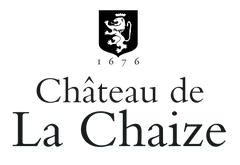
Château de La Chaize is among the oldest, most historic estates in Burgundy’s Beaujolais region. Cared for by the same family for nearly three and a half centuries, the estate has been passed on to new owners, the Gruy family, who are equally committed to managing the estate with the utmost care, while implementing an ambitious environmental plan. Among the many initiatives is the conversion of all vineyards to organic farming, the adoption of precision viticulture, reducing carbon their carbon footprint, and recycling every by-product from viti- and vinicultural activity, to achieve zero waste.
Founded in 1670 by the seneschal of Lyon François de la Chaize d’Aix, the main Château de la Chaize building and gardens were completed by Jules-Hardouin Mansart and André le Nôtre, respectively architect and gardener of the Château de Versailles. Château de la Chaize is among the oldest, most historic estates in Burgundy’s Beaujolais region. Boasting over 250 acres of vineyards, it is also one of the largest. It is today considered one of the most innovative estates in Burgundy. Among its forward- thinking practices is the adoption of eco-friendly farming techniques, commonly referred to as Agriculture Raisonnée. Chemical treatments have been reduced to a strict minimum, for example, and the growing of grass between rows has been re-introduced to enrich the soil and reduce erosion.
Press Reviews
Wine Enthusiast
90 points
This Beaujolais estate also has vines in Pouilly-Fuissé to the north. The wine has good minerality as well as ripe apple and spice. Lightly wood aged, it is a rich, structured and fruity. Drink the wine from late 2020. - Roger Voss
- Red Wine
- Syrah
- Biodynamic, Natural, Organic, Vegan-Friendly
- Dry
- Light Bodied
- 750ml
- 13.98% alc./vol
About the Winery
Domaine du Coulet - Matthieu Barret
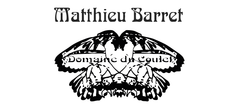
Matthieu Barret was born in Aix-en-Provence in 1975 and studied viticulture in Beaune.
He is the 7th generation vigneron and joined his grandfather in Cornas in 1997. Previously, his family had only been farming and selling grapes. He practices biodynamic viticulture, obtaining very low yields (23 hl/ha) and extraordinary quality. He describes his wines as being 100% grape, with a very low sulphite addition. His wines are extremely clean, and, true to the Cornas character. Domaine du Coulet was founded by Matthieu Barret’s grandfather after WWII, and over the years has supplied grapes to some of the best known producers in the Northern Rhône, including Chapoutier and Delas. While his father eschewed the agrarian lifestyle, opting instead for a career in international business, Matthieu knew early on that he wanted to be a vigneron. In 1998 at the age of only 23, he took over the family’s 25 acres of well-situated vines on the terraced hillsides of Cornas.
From the beginning, Matthieu has employed natural, organic practices and by 2002 (his second year of production) the domaine received its biodynamic certification. With each vintage, Matthieu has gained a better understanding of his vine parcels and through thoughtful experimentation, he now turns out a remarkable selection of Cornas wines that express the unique nuances of each micro-terroir. No new oak, no racking, minimal use of sulfur and no fining or filtration. Pure, sexy Syrah.
- Red Wine
- Syrah
- Biodynamic, Natural, Organic, Vegan-Friendly
- Dry
- Medium Bodied
- 750ml
- 12.5% alc./vol
About the Winery
Domaine du Coulet - Matthieu Barret

Matthieu Barret was born in Aix-en-Provence in 1975 and studied viticulture in Beaune.
He is the 7th generation vigneron and joined his grandfather in Cornas in 1997. Previously, his family had only been farming and selling grapes. He practices biodynamic viticulture, obtaining very low yields (23 hl/ha) and extraordinary quality. He describes his wines as being 100% grape, with a very low sulphite addition. His wines are extremely clean, and, true to the Cornas character. Domaine du Coulet was founded by Matthieu Barret’s grandfather after WWII, and over the years has supplied grapes to some of the best known producers in the Northern Rhône, including Chapoutier and Delas. While his father eschewed the agrarian lifestyle, opting instead for a career in international business, Matthieu knew early on that he wanted to be a vigneron. In 1998 at the age of only 23, he took over the family’s 25 acres of well-situated vines on the terraced hillsides of Cornas.
From the beginning, Matthieu has employed natural, organic practices and by 2002 (his second year of production) the domaine received its biodynamic certification. With each vintage, Matthieu has gained a better understanding of his vine parcels and through thoughtful experimentation, he now turns out a remarkable selection of Cornas wines that express the unique nuances of each micro-terroir. No new oak, no racking, minimal use of sulfur and no fining or filtration. Pure, sexy Syrah.
- Rosé Wine
- Grenache, Syrah
- Organic, Vegan-Friendly
- Dry
- Medium Bodied
- 750ml
- 13.5% alc./vol
About the Winery
Mas Carlot

Mas Carlot is situated in the south of the Rhône Valley, extending across 76 hectares of pebbly land southeast of Nîmes. Originally a 17th century farm, this beautiful estate was resurrected in the 1960's by the Blanc family—it is currently run Cyril Mares of the neighbouring and equally reputable property, Mas Bressades.
The appellation of Costières de Nîmes used to be considered part of eastern Languedoc but the climate, soil, topography and wine are far closer to those just over the river in the Southern Côtes du Rhône. It is now a region very much on the up and is widely recognized as a great source of excellent value wine.
Press Reviews
Robert Parker
91 points
Mas Carlot's 2021 Costieres de Nimes Rose Generations is a terrific blend of 55% Grenache, 35% Syrah and 10% Mourvèdre. Offering up generous aromas of strawberry, watermelon and lime, it's medium-bodied, plump and expansive on the palate. Made in a traditional style, with more color and extraction than the skinnier, more citrusy Provence wannabes, this is a lovely wine, with touches of silk and spice on the finish, not just citrus.
- White Wine
- Garganega
- Organic, Vegan-Friendly, Volcanic
- Light Bodied
- 750ml
- 12.5% alc./vol
About the Winery
Azienda Agricola Tessari

The Tessari family have Soave in their blood. For three generations they have been extracting delectable wine from the well cared for vines of their Monteforte d’Alpone vineyards. With only a little over a hectare of Garganega grapes in the prestigious volcanic solis of Soave Classico, Antonio Tessari hand dug his cellar back in 1933 and started the legacy that continues today with his grandchildren: Germano, Antonio and Cornelia.
From vineyard to bottle, these three siblings oversee it all; with unwavering respect for tradition, quality and passion for the art of winemaking. The volcanic soils of the hillside are rich with basaltic rocks and clays, which guarantees the health of the plant and the promotes the mineral and floral aromas that are characteristic of the Garganega grape. Truly artisanal wine making at it’s best.
Press Reviews
Wine Align
91 points - David Lawrason
This shows the vivid yellow colour I expect from good Soave. It also shows the complex, detailed nose honeysuckle, lemon blossom, camomile and almost tropical peach/mango fruit. It is mid-weight, rich and viscous yet shows some enlivening freshness, spritz and tenderness at the same time. Slightly bitter and lemony on the finish. The length is excellent. Tasted January 2023.
90 points - Michael Godel
The latest volcanically driven garganega from the Tessari family is a child of a promising vintage full of sun, fun and support. The sky is the limit for just how well this will drink and please. It is in fact bottled salty and fruit crunchy deliciousness and why shouldn’t it be? Made simply with tradition in mind, basalt in pocket and all the modern facility made available. Citrus and nectarine, basil and Maldon salt. Lime all over the finish. Spot on. Drink 2023-2025. Tasted January 2023.
4 Stars - Sara d'Amato
Nervy and salty with a dash of elderflower and pear, this stylish Soave Classico is a favourite of restauranteurs. Richly textured with notes of apple and lemon zest, salt and lime. Quite chalky and dry, with a pleasant degree of roundness despite the moderate level of alcohol. Nicely balanced with a pleasant finish of good length. Drink now. Tasted January 2023.
4 Stars - John Szabo, MS
The 2021 Soave Classico from Tessari shows a fine profile of both ripe and fresh fruit, on the lighter and fresher side overall, declared at 12% alc. Citrus fruit leads - lemon-lime and white grapefruit - and length and depth are solid. Acids draw saliva, a crunchy, lively expression overall. Drink or hold short term. Good fun. Tasted January 2023.
- Residual Sugar: 1.5 g/l
- 750ml
- 13% alc./vol
Press Reviews
Wine Align
91 points - Michael Godel
Four months have done right by this pinotage and the beauty lies in how such an example could change 99 percent of minds as to what the grape from South Africa can truly and effectively be. No coffee, mocha or java in any respect, no silly or cloying sweet oak but simply fruit. Bright and clean expressing clear varietal skies. Pinotage can be like this and you need to try this wine to become a believer. Last tasted November 2024.
As per the recent (five-plus) year trending style for (better quality) Cape pinotage there is a lighter sense of hue, extract and texture to Radford Dale’s Vinum bottling. The aromas could not be confused or exchanged for any other grape mind you but red fruit prevails and earthiness grounds the wine at every point of exchange. No shock that winemaker Jacques de Klerk would do right by pinotage and provide the stage it needs to succeed. Tons of spice all over the finish. Drink 2025-2028. Tasted July 2024.
91 points - John Szabo, MS
This is a remarkably delicate and perfumed pinotage, pale of hue and redolent of still-fresh red berry fruit, notably absent the frequent rusticity displayed by the variety, as well as oak influce. Tannins are light and delicate and acids crunchy and juice, driving saliva and desire for additional sips, and the finish lingers delicately but impressively, the work of a hand and savvy hand. This will be a revelation to anyone who's exposure to pinotage was limited to the more commercial, sweet coffee-chocolate-flavoured versions, or the ultra old style reminiscent of rusty nails and rubber boots 0 this is nothing like that. Tasted November 2024.




























